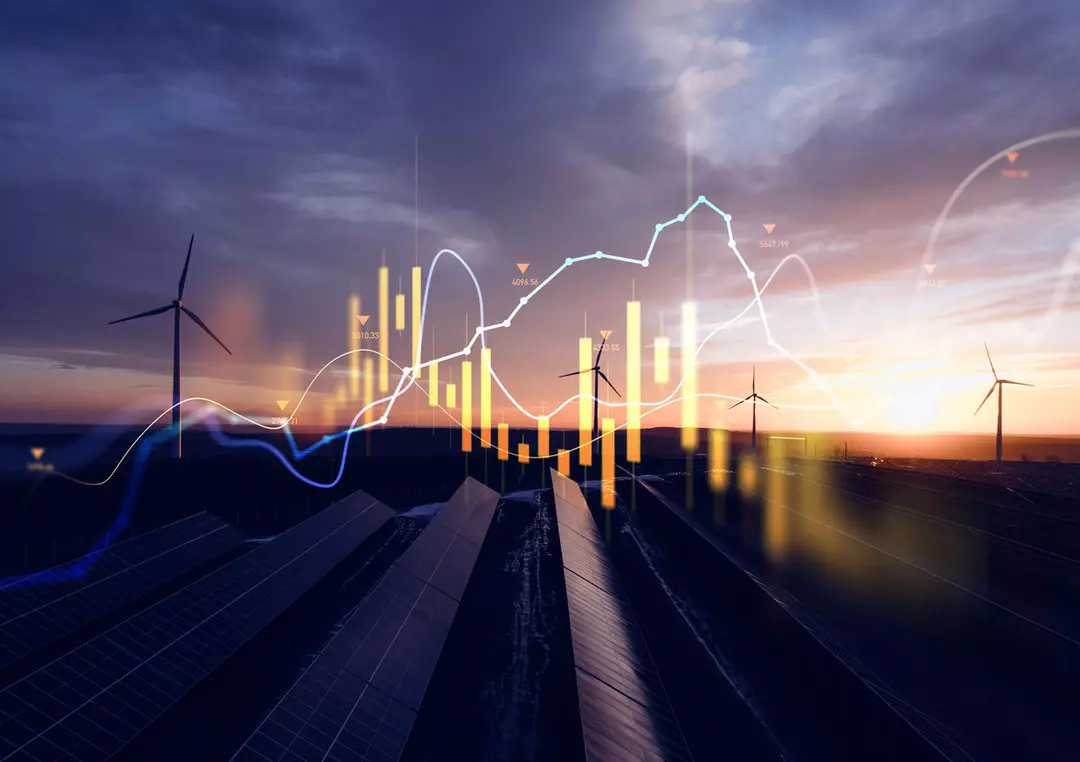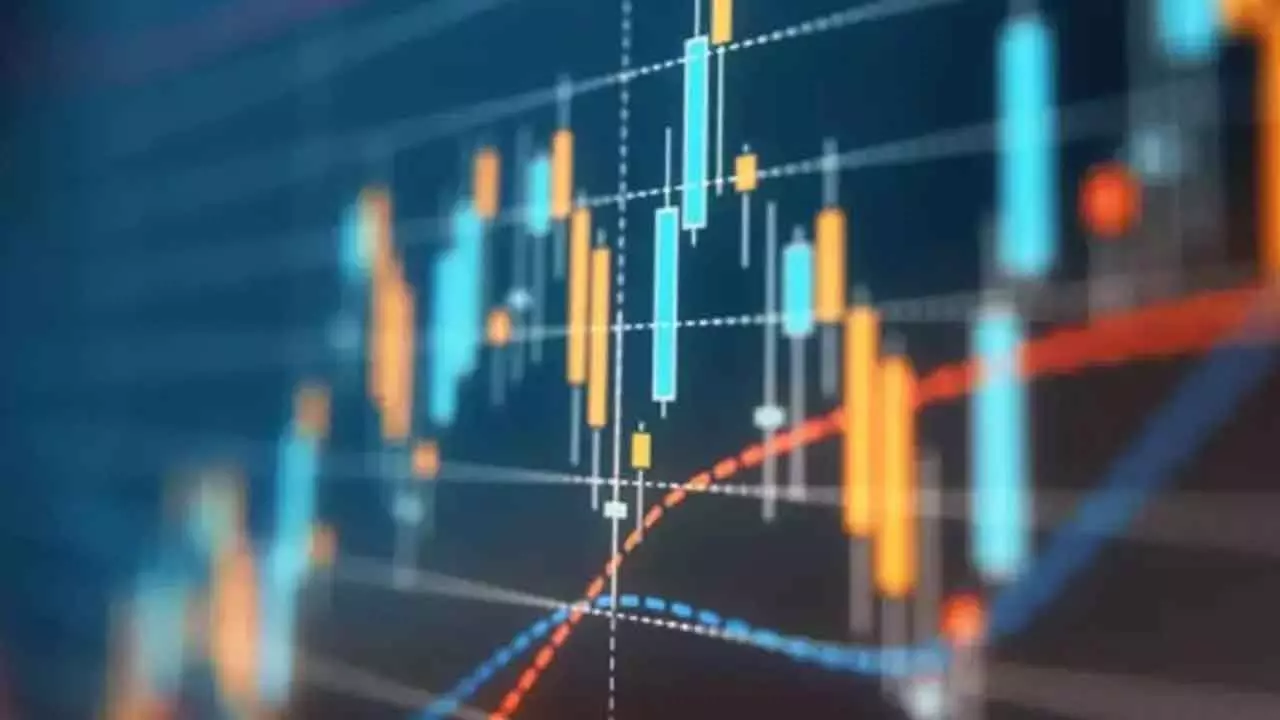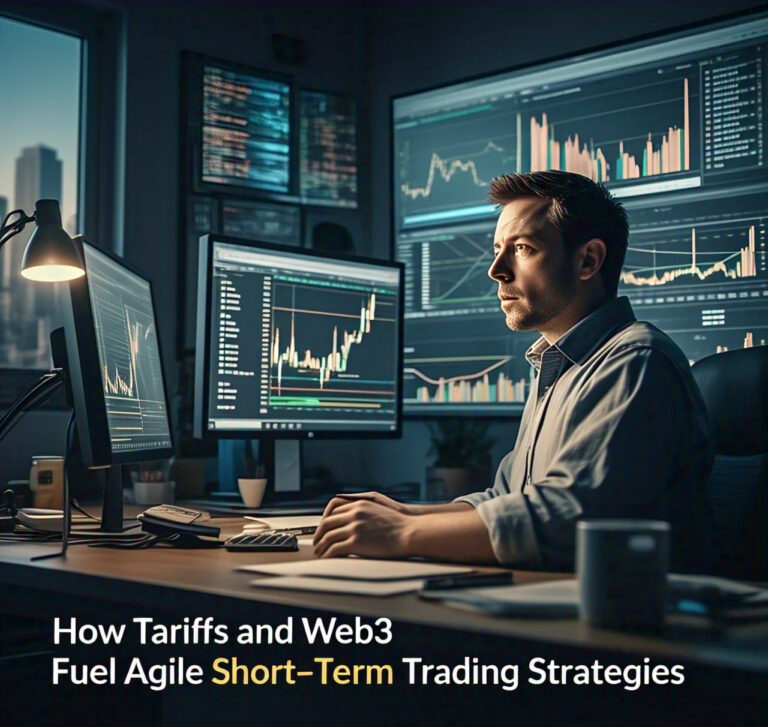With tariffs and trade rules altering the tactics used by dealers worldwide, the global trading landscape is undergoing significant changes. Rising trade conflicts, particularly between major nations such as the United States and China, have recently brought unprecedented instability and uncertainty.
A well-known Web3 CEO claims that this changing climate is forcing traders to adopt short-term strategies to mitigate risk and capitalise on fleeting market opportunities. The paper examines the connections between behaviour and market behaviour, drawing on insights from industry experts and considering the broader economic and technological context.
Economic Impact and Trade Dynamics of Tariffs
Tariffs, which are levies paid on imported goods, serve as economic tools to balance trade deficits, defend domestic businesses, or demonstrate geopolitical power. Although intended to level the playing field and promote local production, tariffs often lead to supply chain disruptions, higher prices for importers, and retaliatory actions from affected nations. Tariffs can escalate into trade wars, which have historically had far-reaching effects on global trade, supply chains, and market stability.
 For traders, these changes introduce additional complexity. The erratic nature of tariff announcements and the evolving character of world trade agreements compel market players to reassess their long-term commitments and risk exposure. This environment necessitates volatility, which prioritises approaches that emphasise agility and responsiveness.
For traders, these changes introduce additional complexity. The erratic nature of tariff announcements and the evolving character of world trade agreements compel market players to reassess their long-term commitments and risk exposure. This environment necessitates volatility, which prioritises approaches that emphasise agility and responsiveness.
Shift to Agile Short-Term Trading Driven by DeFi and AI Advances
Many traders are substituting more agile, short-term strategies for long-term speculative positions due to these difficulties. This turn enables traders to react quickly to changes in the market, geopolitics, and tariff announcements. Using technical analysis, real-time data, and algorithmic trading tools to take advantage of market swings within days or even hours, short-term trading strategies can call for
The CEO of a major Web3 company says this adjustment is in line with technology that is decentralizing trading. Rising decentralized finance (DeFi), blockchain-powered trading platforms, and AI-driven market transaction technologies help traders make faster, more accurate deals. These innovations remove intermediaries and increase transparency, making short-term trading easier and more successful.
Web3 Transforming Decentralized Financial Markets
Built on blockchain technologies, the Web3 era of the distributed internet is transforming the way financial markets operate. Web3 systems enable peer-to-peer trading, smart contracts, and asset tokenisation, unlike more traditional centralised exchanges. This new infrastructure provides democratised Access to global markets, increased liquidity, and lower transaction costs.
In this context, traders are increasingly utilising Web3 features to navigate tariff-driven market volatility. Smart contracts enable traders to profit from temporary market inefficiencies without human intervention by automatically executing trades based on predefined parameters, such as tariff announcements or currency fluctuations. Furthermore, offering different trading alternatives that are less prone to conventional trade restrictions and regulatory restraints, such as tokenized assets and decentralised exchanges (DEXs).
Notably, utilising Web3 technologies in trading enhances data security and privacy, thereby mitigating the risks associated with centralised data leaks. These elements together influence an increasing inclination towards agile, tech-enabled, and resilient short-term trading techniques that are resistant to external shocks.
Impact of Tariffs on Short-Term Trading and Market Stability
Short-term trading reflects more profound economic changes, even if it gives flexibility. Tariffs create uncertainty that erases investor confidence in long-term projects, therefore lowering capital investment and slowing down economic growth. Short-term gain-oriented traders could help increase market volatility, as rapid buying and selling significantly affect price movements.
Macroeconomically, this behaviour modification affects market depth and liquidity patterns. Policymakers and central banks must address these dynamics as they create responses to help stabilise markets. For example, while adjusting monetary policies to mitigate adverse effects on financial systems, the Federal Reserve and the European Central Bank have closely monitored trade-related risks.
Moreover, the focus on short-term strategies underscores the growing importance of accurate and timely information. Accessing real-time tariff updates, geopolitical news, and economic indicators becomes crucial, thereby highlighting the part advanced analytics and artificial intelligence play in enabling trader decision-making.
Trade Wars and Tech Innovations
The present trade environment has been shaped in part by several well-known events and people. Starting in 2018, the US-China trade war—characterised by tit-for-tat tariffs—is a prime example of how political choices impact global markets. Key players, including Chinese President Xi Jinping and former U.S. President Donald Trump, have directly influenced tariff rules that affect global supply chains.
Influential voices from the Web3 and fintech sectors—CEOs such as Vitalik Buterin of Ethereum Surge and creators of distributed finance projects—argue for technological solutions to mitigate trade-related uncertainty. Their work emphasises how innovative technology and economic policy are converging to redefine trade paradigms.
Advanced Trading Strategies for Navigating Tariff Volatility
Traders negotiating tariff-induced volatility employ strategies beyond simply reducing trade volumes. Strategies for currency hedging help mitigate the effects of trade tensions on changing exchange rates. Diverse asset classes and global marketplaces help to lower regionally specific tariff risk.
 Furthermore, as traders increasingly rely on sentiment research, they utilise natural language processing (NLP) to analyse sentiments expressed in official announcements, news, and social media. This strategy enables quick strategic changes, as well as the anticipation of tariff announcements.
Furthermore, as traders increasingly rely on sentiment research, they utilise natural language processing (NLP) to analyse sentiments expressed in official announcements, news, and social media. This strategy enables quick strategic changes, as well as the anticipation of tariff announcements.
Retail traders, hedge funds, and institutional investors alike are utilising hybrid models that combine fundamental and technical assessments, tailored to specific situations. Continuous improvement of trading signals using machine learning techniques optimises entry and exit points among rapidly shifting trade rules.
Final thoughts
Linking internally to relevant subjects like “Global Trade Policies, “Blockchain in Finance,” and “Algorithmic Trading Tools” will help readers to have a complete awareness of tariff impacts and trading techniques.
Externally, citing reputable sources includes referencing research from the Peterson Institute for International Economics, the International Monetary Fund (IMF), and World Trade Organisation (WTO) papers to enhance the credibility of the piece. Citing market studies from Bloomberg, Reuters, and top financial institutions also lends credibility and depth to the analysis.

